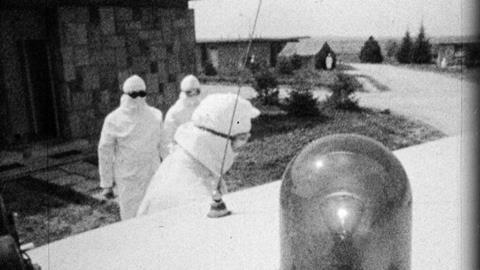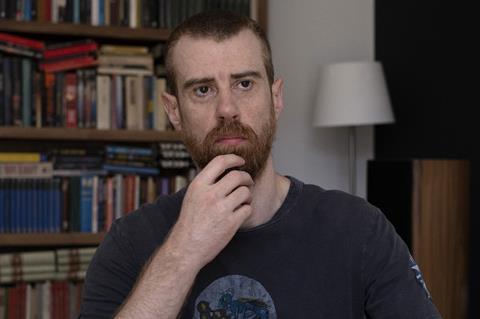
Serbian director Mladen Kovačević is presenting his documentary Another Spring in the Documentary competition at this month’s Sarajevo Film Festival.
Exclusively using archival footage, Another Spring chronicles the 1972 Yugoslav smallpox epidemic, the largest outbreak of smallpox in Europe after the Second World War
Epidemiology professor Zoran Radovanović, who was present at the time, recounts the steps taken to successfully contain the outbreak.
It’s the fifth time a Kovačević doc has played in Sarajevo’s documentary competition. He won the award in 2020 for Merry Christmas, Yiwu (2020). Unplugged (2013), Wall of Death, and All That (2016), and 4 Years in 10 Minutes (2018) all previously won the Grand Prix in National Competition at Beldocs, in Belgrade. Another Spring had its world premiere in the Proxima section of the 2022 Karlovy Vary International Film Festival.
Another Spring was produced by Mladen Kovačević and Iva Plemić Divjak through Horopter Film Production (Serbia) in coproduction with Serbia’s RTS – Radio-television of Serbia, Cinnamon Film (Serbia), and Bocalupo Films (France). The film benefitted from a post-production grant from the Doha Film Institute. International sales are handled by the UK’s Taskovski Films.

What inspired you to make this film now? Was it perhaps the Covid pandemic?
My previous film premiered in Rotterdam in January 2020, just before the pandemic. As we were preparing to start production on the next film, the pandemic started, and the project that was intended to be shot in several countries seemed logistically too complicated, with the quarantines, travel restrictions and all that. So, I started thinking about something simpler, maybe an archive film, something thematically more relevant, and the story of the Yugoslavian epidemic of smallpox — the last epidemic of smallpox in Europe — came to my mind almost immediately.
Did you begin working on the film on your own, or was the film’s producer involved from the start?
I work with the producer Iva Plemic, and we only do our own films; it’s a very privileged arrangement for an author. The moment the idea came to my mind, we went for a walk and I started describing the film to her. On that same day, we went and bought the book “Variola Vera,” written by professor Zoran Radovanović.
How did you find the archive material seen in the film?
The majority of the archive seen in the film is from Radio Television Serbia, and the access wasn’t an issue, nor was finding most of it. Everything related to the 1972 smallpox epidemic was logged in the databases, so the difficult task was to find the materials from that period which were not directly related to scenes of the epidemic. The archive film stocks were then scanned for the first time for this film, and although they were 50 years old, they felt fresh. The other sources for the archives were Television Kosovo, Film News, and Zastava film, the military film archive.
How did you select what to include and what to omit from the final edit?
The structure of the film is very precise, genre-like, because the story itself was like that. At first it resembles a police procedural, or a detective story of the so-called where-it-went-wrong variation, where protagonists reconstruct the events before the virus was discovered in Yugoslavia. Then, from the moment the struggle to contain the epidemic begins, the film turns into a medical thriller. Everything that didn’t fit into that structure, no matter how interesting, was left out. But the structure is not forced, it is still a documentary form faithful to an organic narrative approach.
Did you always plan to have narration? Can you tell us about the narrator, epidemiology professor Zoran Radovanović?
Professor Radovanović naturally took on the role of protagonist and narrator. We sat in the studio for a week and talked, and the narrative progressed through his intimate recollections. The archival material in the film is somewhat deconstructed and reinterpreted in order to resemble memories, but also to set the ominous tone of a dangerous disease spreading unnoticed around the country. Professor Radovanović was also very visible during the pandemic because he was criticising the way Serbian institutions were dealing with Covid. He was practically banned from state media. It was great to listen to him talk about the way Yugoslavian institutions handled smallpox, which in the annals of world medicine has remained one of the best examples of an effective fight for the elimination of an epidemic.
What are you working on now?
I’ve almost finished shooting a new feature documentary titled Beginnings: Possibility of Paradise, and I am developing a fiction feature called Behind the Curtains, Behind the Trees.
























No comments yet